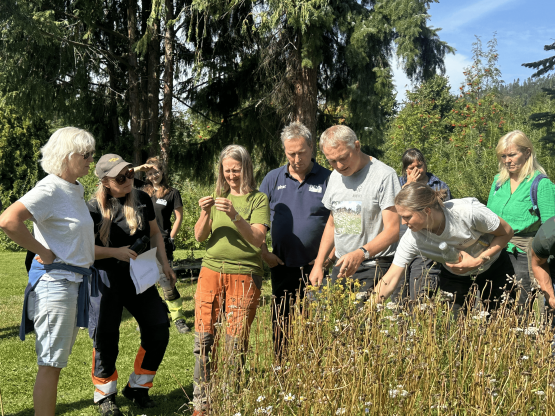Norges grønne fagskole – Vea hosted two professional courses focusing on the establishment and management of wildflower meadows on August 12 and 13. The courses attracted numerous participants from across Norway, and the high level of engagement highlights a growing interest in nature-based solutions and increased biodiversity—both in the public and private sectors.
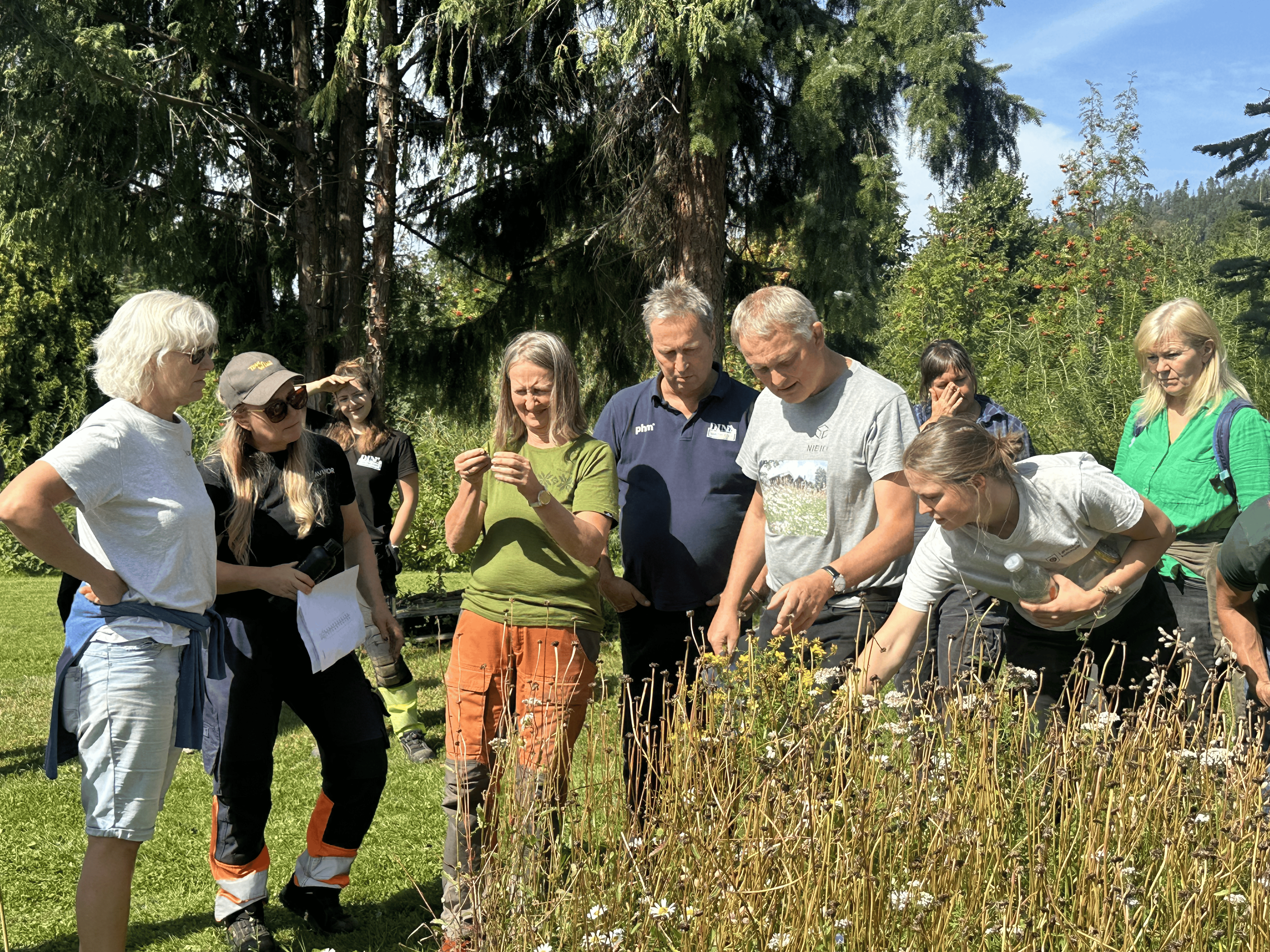
It is especially encouraging that the courses draw participants from a wide range of industries and professional fields, all sharing a strong commitment to sustainable and species-rich cultural landscapes. This interdisciplinary meeting between practice and research, management and operations, fosters valuable exchange of experience and strengthens the overall knowledge base across sectors.
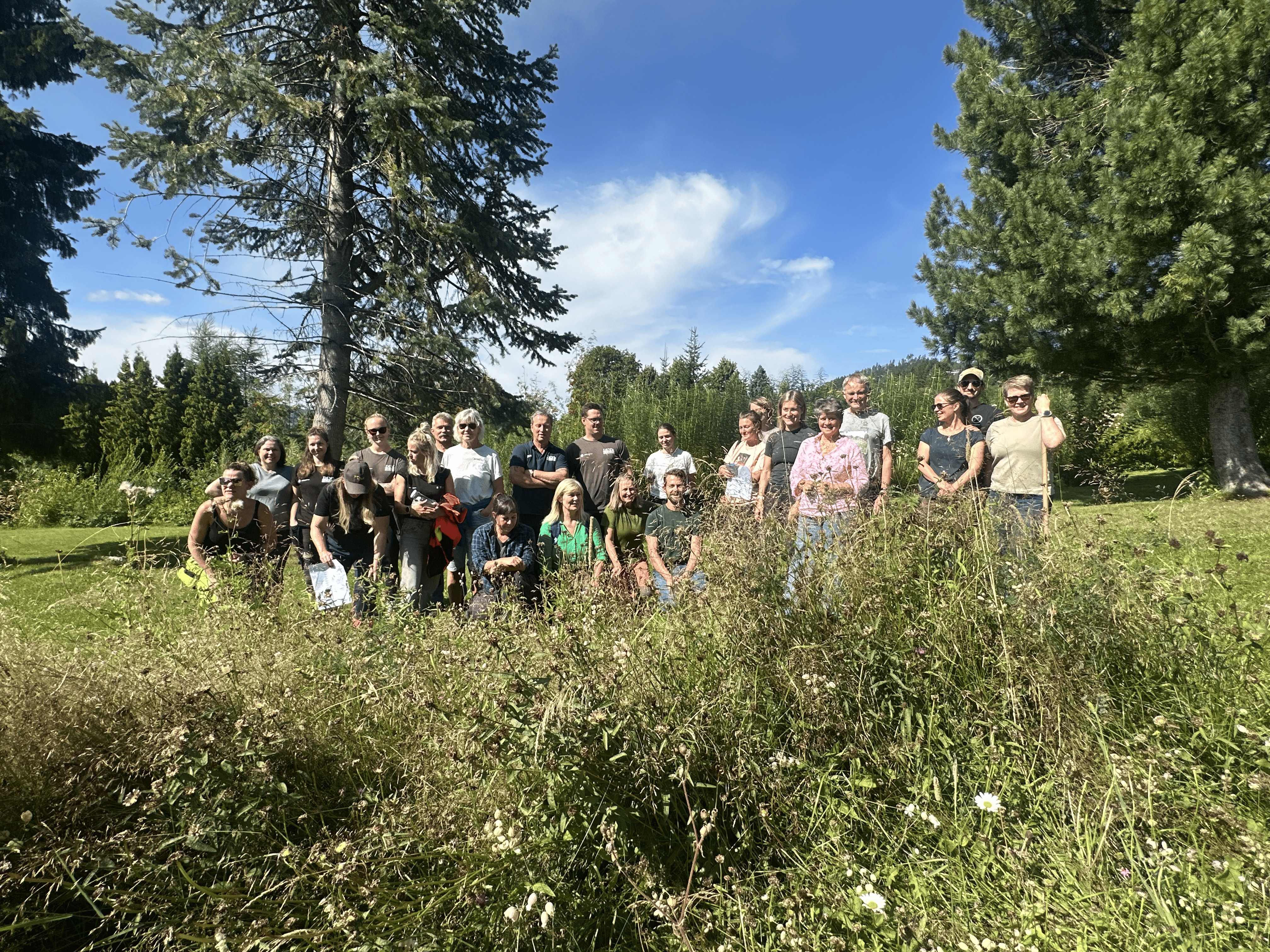
The courses covered the entire process from establishing to managing wildflower meadows and species-rich cultural landscapes. Participants received a thorough introduction to the historical and ecological foundations of wildflower meadows in the landscape, along with practical guidance on seed selection, sowing techniques, mowing, and restoration. Emphasis was placed on site-specific solutions and how management strategies can be adapted to different habitat types and developmental stages.
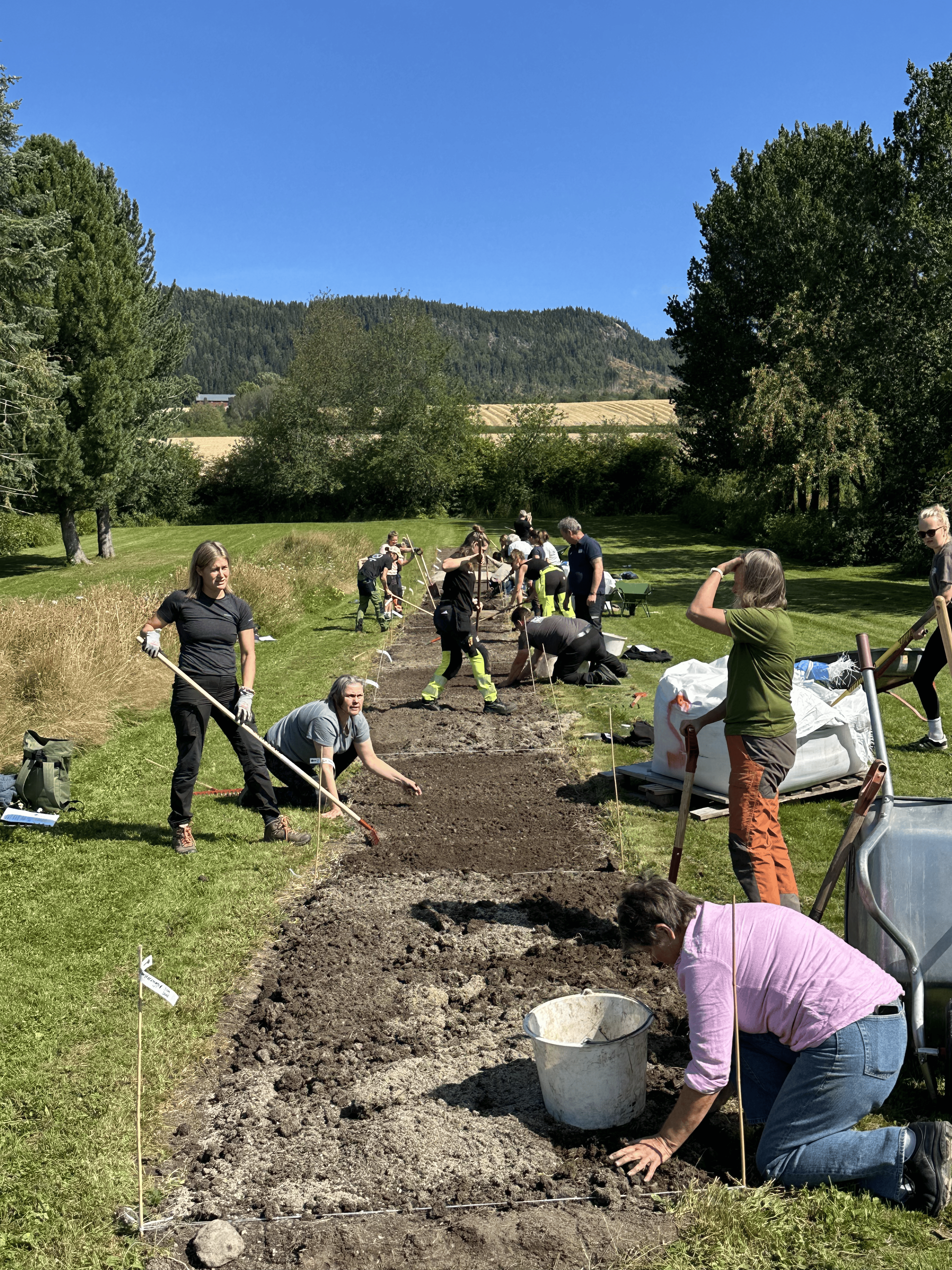
The course instructors, researchers Trygve Aamlid and Ellen Johanne Svalheim from the Norwegian Institute of Bioeconomy Research (NIBIO), shared their in-depth knowledge and many years of experience in grass and seed research, cultural landscape ecology, and ecological restoration. The combination of strong academic grounding, hands-on exercises, and field excursions in Vea’s own wildflower meadow areas was very well received.
The courses are part of the international collaboration project TEAM#UP, where Vea serves as the Norwegian partner and project lead. The aim of the project is to strengthen continuing education and training opportunities in ecological restoration across Europe, and to help meet the increasing demand for expertise in sectors working with landscape, environment, and sustainability.
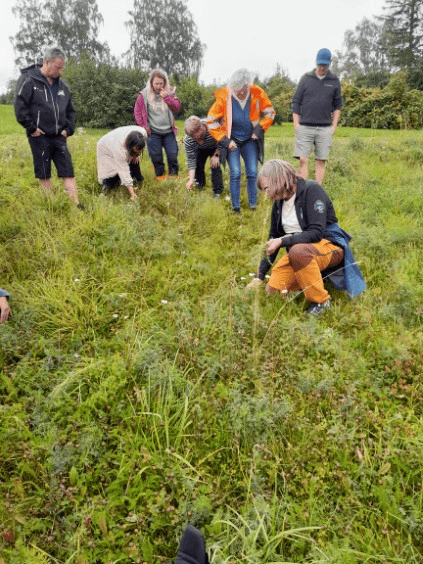
The strong interest in this type of professional development confirms the need for more structured and accessible knowledge within the fields of ecological restoration and biodiversity. Norges grønne fagskole – Vea looks forward to offering more such courses in the future, in line with the needs of both society and professional communities.
Text/photo: Grethe Bøhn Busterud
